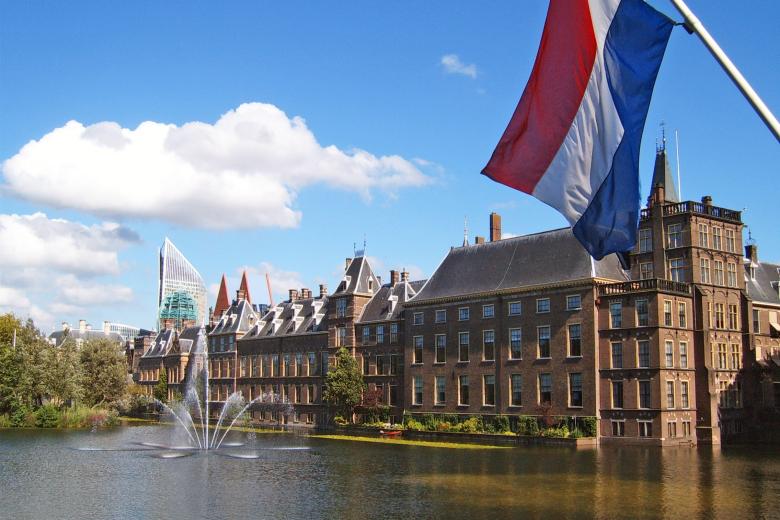Im Südwesten nichts neues
Yesterday’s elections marked the beginning of an outstandingly important election year for Germany and is considered a first test run for the federal elections in September.
Some thoughts on the results of state elections in Germany’s Saarland
According to one commentator covering yesterday’s state elections, Saarland is a place best known to many Germans from news reports on forest fires raging somewhere in the world: “…an area twice the size of Saarland…”. Indeed, the Saarland is the smallest of Germany’s composite Länder (not counting the city states), both by surface area and by population. Yet, yesterday’s elections marked the beginning of an outstandingly important election year for Germany and is considered a first test run for the federal elections in September. And despite being a rather minor political event by comparison, they are also part of a closely monitored election season throughout Western Europe that will set the stage for the development of the EU in the foreseeable future. Reason to zoom on this little state and the results of yesterday’s polls.
High turnout
A first noteworthy result is the high turnout of 69.7%, up from just over 61% in 2012. This increase in turnout reflects a general trend, observable in all German regional elections over the past year. The re-politicisation of the German populace can certainly be traced back to a greater polarisation of the political spectrum since the refugee crisis of 2015, in the wake of which Germany has seen the addition of the right-wing populist AfD (Alternative für Deutschland) to the short list of serious contenders for crossing the 5% electoral threshold that parties need to cross to be represented in the country’s state and federal parliaments. Another palpable cause for the re-politicisation of the electorate may be the recent nomination of Martin Schulz, the former president of the European Parliament, as the front runner of the German social democratic party in the upcoming federal elections. After years of grand-coalition government (both in the Saarland and in the federation) with the social democrats as a junior partner of Angela Merkel’s dominant CDU and a time of ever greater approximation of Germany’s two largest parties, the nomination and popularity of Schulz seemed to mark the return of real political alternatives at the centre of the democratic spectrum.
The new-found optimism of Germans left of the political centre seems to have suffered a setback in yesterday’s elections. The Christian Democrats and their local front runner Annegret Kramp-Karrenbauer squarely won the elections with 40.7% of the votes and an 11% lead over the Social Democrat SPD, who came in at 29.6%. With the Left Party (Die Linke) at 12.9% and both the Green Party and the Liberals winning too few votes to enter the Saarland’s state parliament, a continuation of the governing grand coalition appears to be both the only possible government option and the one preferred be much of the electorate – a fact that is also mirrored in the very high approval ratings of both Mrs Kramp-Karrenbauer as the Saarland’s prime minister and the grand coalition she presides over.
The far-right AfD had hoped for a double-digit result but won a mere 6.2% of the votes, thereby crossing the 5% threshold relatively narrowly. However, this should not be seen as a sign of the demise of the populist newcomer to the parliamentary spectrum that had scored very well in several states elections last year, but rather as a consequence of the relative strength of the left party, whose prominent front runner, Germany’s former minister of finance Oskar Lafontaine, has his home in the Saarland.
An Augury for the federal elections?
The most interesting question raised by the Saarland elections is whether and to what extent it is an augury for the federal elections later this year. While the unexpectedly clear victory of the Christian Democrats may have taken some of the steam out of Mr Schulz’s campaign to become Germany’s next chancellor, several factors limit the predictive value of yesterday’s results.
First, the decisive reason for the Christian Democrats’ success was the personal popularity of the state’s prime minister and the high approval rates of the governing coalition, both of which are incongruent with the still strong but diminishing approval rates of Angela Merkel, the popularity of Martin Schulz, and the weariness of grand-coalition government in the federation that many voters feel.
Second, the irrelevance of the Greens and Liberals, as well as the strength of the left party and relative weakness of the far right are local phenomena very unlikely to be mirrored in other states and in the Bundestag.
Third, while the Saarland electorate may be representative of the overall German population in that it values stability over experimentation, federal election season has only just begun.
This blog is published on Law Blogs Maastricht
S. Hardt
Assistant professor of (comparative) constitutional law

-
The outcome of the British elections
From an academic perspective, we need to revise our textbooks: after Cameron-Clegg (2010-2015), and after a narrow majority for Cameron in 2015, there will be no majority party in the UK nowadays. (Dutch only)

-
Getting into force with a caretaker government?
Would that not be much more attractive? So: a Cabinet without excessive programme and with a number of subjects that can be left open. (Dutch only)

-
Election analysis: much to do? (part 2)
After the Celebrations: What’s next for France? President-elect Macron has his work cut out. His challenges are many. There is much to do.
